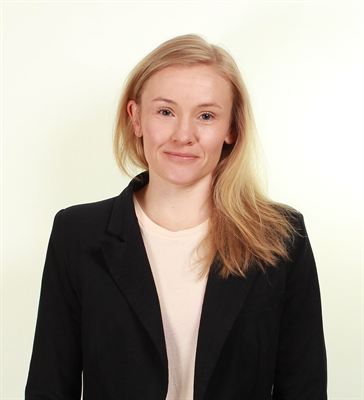Time pressure, control, and interruptions can make specialist work boring

Press release 25/2016, 25th April 2016, Helsinki, Finland
A recent study of experiences of boredom at work has challenged the traditional belief that boredom only results from monotony. Those performing specialist work become bored when their work lacks meaning. This can happen when, for example, the worker faces constant time pressure, control, or interruptions. The study, carried out by the Finnish Institute of Occupational Health (FIOH) consisted of interviews of sales, administrative, banking, care, and support workers.
”Although occasional feelings of boredom are common and harmless, we should still be aware of them, and be careful that they do not become dominant or permanent. Constant boredom eats away at well-being, and often remains hidden because the bored person is physically, but not mentally, present,” says Lotta Harju from FIOH. “In the worst case, this can lead to a waste of resources, which causes the whole organization, as well as the worker, to suffer.”
An organization battling with continuously diminishing resources needs to sit up and take notice, say the researchers. It is high time that organizations update their workers’ opportunities to make use of their know-how and the work community’s resources.
”Bored workers become passive, because they cannot use their skills to their full potential. Stress increases, work ability and productivity decrease. Thoughts of looking for a new job or taking early retirement become more frequent,” reminds Harju.
Inertia, acceleration and disrupted work rhythm
The study found three types of boredom, characterized by different experiences of time. The first type is depicted by a feeling of inertia: work does not meet the worker’s expectations, it has become a boring routine or the tasks are not sufficiently challenging.
The second type of boredom is defined by an experience of acceleration. The worker has too much work, or considers the goals set for the work unrealistic.
The third type concerns disrupted work rhythm, which results from different obstacles or restrictions to performing work in a meaningful way, such as bureaucracy or control that is seen as unnecessary, problems in the work community or distribution of work, or continuous interruptions to the flow of one’s work.
The study reveals that the reasons for and the forms of experiencing boredom are diverse. A person can become bored at work even if the work is personally meaningful, if they cannot perform it in a meaningful way. All three types of boredom were connected to the underutilization of a worker’s capacity. Workers were not able to maximize their skills, or these skills were inefficiently channelled.
Seventy-two workers and supervisors were interviewed in FIOH’s study. The interviewees worked in different specialist and support jobs related to sales, administration, banking and care. The study is part of FIOH’s 'Spiral of Inspiration - innovative and flourishing workplaces' research and development project, which investigated how common work engagement and job boredom is in Finnish workplaces, and the factors these phenomena. The study was funded by Tekes – the Finnish Funding Agency for Innovation.
For further information, contact: Lotta Harju, Researcher, FIOH, tel. +358 43 824 5926, lotta.harju@ttl.fi
Article: Lotta Harju ja Jari Hakanen (2016): An employee who was not there: a study of job boredom in white-collar work. Personnel Review, Vol. 45 Iss: 2, pp.374 – 391. doi: 10.1108/PR-05-2015-0125
Media Services
Kristiina Kulha, Head of Communications
FIOH, Helsinki
Tel. +358 30 474 2551, +358 40 548 6914,
kristiina.kulha[at]ttl.fi
Tiina Kaksonen, Communications Assistant
FIOH, Oulu
Tel. +358 30 474 3015, +358 50 364 3158
tiina.kaksonen[at]ttl.fi
The Finnish Institute of Occupational Health (FIOH) researches, develops and specializes in well-being at work. It promotes occupational health and safety and the well-being of workers. It is an independent institution under public law, working under the administrative sector of the Ministry of Social Affairs and Health. FIOH has six regional offices, and its headquarters are in Helsinki. Fifty per cent of its funding comes from the state budget.
Tags:


